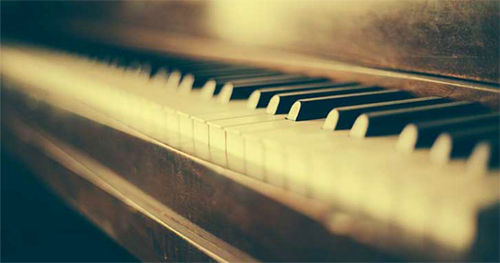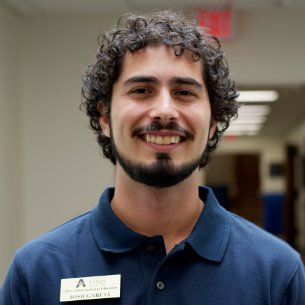Playing music is a lot like having super powers. The ability to release all of the energy and emotion that cannot find its way into your normal life is not only an outlet, but a way to communicate. Music serves as an endless well. It’s your favorite pair of blue jeans. It’s your earth-shattering heartbreak. It’s your bursting true love. It’s your secret universe daydreams. It is your future, present, and past. This innate desire for song is essential to us as a human race, and yet we so often take it for granted, even when it is most needed. It is in this regard that the development of music education should be considered as a human right and building block.
I was recently forwarded a video link that captures this importance, entitled, You Are Not Blind Children, You Are Just Children. The story follows music educator, Zang Long, with snippets from her progress at the Wuhan City School for the Blind, located in south-central China. Ms. Long began teaching at the school in 2011. She had already taught for many years in the traditional system, but found her new environment at Wuhan to be a little too quiet for all of the untapped potential she saw there. The music education program that followed was the starting point of a whole new world of possibilities for the students.
If you had asked many of these students what they wanted to be before Ms. Long started her music education program, the most ambitious of these 150 students would aim to work as a masseuse. Now, they proudly speak of wanting to become astronauts, inventors, coaches, Chinese teachers, actors, and, of course, musicians. This newfound sense of pride has not only grown from what Ms. Long has done, but how she has done it. “I’ve never treated them as blind children. Everyone in this world is different. There is no one standard to treat everyone. I let them help me. I used to ask them to help me wash apples. I want them to know that they are not here to be taken care of. They can help others themselves too,” she explains.

The Wuhan City School for the blind was originally established in 1919, and is one of the largest special education institutes in China. Like many parts of the world, education for the blind was limited due to lack of resources, such as Braille materials, and the common misconception that the students were simply not capable of certain activities. It was through the difference of one person, Ms. Long, that these barriers were broken. Her insistence to never lower her standards for them led to the success of an ocarina ensemble, and even China’s first blind youth rock band. But her strong confidence in the children didn’t stop with music, Ms. Long also worked with a physical education instructor to coordinate a physical education class for the students, which led to a very successful jump roping class.
While this story is inspiring within itself, it opens up discussion about the need for a more progressive agenda on the issue of blind education. Ms. Long only happened to this opportunity by chance when she was at a music convention in China. She fondly recalls the turning point in her career, “That year, I took my students to Beijing to perform. At a meeting with some friends, one of them showed me a band of blind children playing ‘Dancing Golden Snake’ on his phone. I was very surprised and overwhelmed with emotion. I couldn’t help but feel sorry for the students. However, I could feel that the video had many shortcomings. The ‘Dancing Golden Snake’ is supposed to be cheerful, while the children’s melody was more or less bleak and implied sadness. I thought if I could teach them, their performances would, perhaps, be more natural, professional, and closer to what it should be.”

If Ms. Long had never seen the video, would the children at Wuhan currently have a music program? We may assume not, and so is the case with so many areas in need of similar programs throughout the world. For example, in South Korea, where music education opportunities for the blind are still minimal. Eunah Choi, a blind classical pianist and ESL teacher opened up about this issue through a new project, Open Goldberg. Choi began taking private lessons when she was six years old, and dreamed of becoming a professional concert pianist, but there were many obstacles in her way simply because she is blind. “Finding Braille music scores is prohibitively difficult,” she explains, “Case in point, only seven of Mozart’s piano sonatas are available as braille scores in Korea. It seems unbelievable, but I am not making this up. So, I didn’t have any choice but to give up my dream of becoming a professional musician.” It is the experience of Choi and so many other blind musicians to soldier through a self-taught method by listening to songs over and over again in an attempt to recreate it through trial and error. There is not any sort of public education resource for them to utilize, and they can rarely find individual help. Choi explains the tedious process of learning classical music, “If the music demands a higher level of accuracy, they rely on volunteer music transcribers who are working in libraries for the blind to get the score they need and practice with it. The volunteer transcribers and braille music proofreaders try their best to produce good-quality braille scores, but since every single musical note has to be typed by hand – I’m talking about every single musical note – it is a very time-consuming process. And depending on each transcriber’s or proofreader’s experience and familiarity with the music being transcribed, the quality of the braille scores can be anything from excellent to absolutely lousy.” While there are a few success stories of self-taught musicians like Stevie Wonder or Ray Charles, the vast majority of students, blind or not, rely heavily upon music education of some sort to find their way. Fortunately, we find school programs that are similar to Ms. Long’s popping up in different parts of the world.
In Ethiopia, where many blind people are commonly denied opportunity and left to beg on the streets or sell lottery tickets, the Salem Music organization has started a project called Inner Vision to provide the blind or visually impaired with a three year music education program. After they earn their diplomas here, they can obtain work like any other individual and help their families. Even though it is the only school of its kind in Ethiopia, the students are elated to develop their talents and contribute to society.
The United States has varying levels of opportunities for the blind, and though some of them have reached steady levels of success and development, the general public is many times unaware of their far-reaching effects on the students. A local music teacher in Utah, Rachel Lighty, has helped the blind and deaf of her school with lessons centered on rhythm, singing, and sharing. These are skills that the students can take back to the classroom and out to the world. Lighty is filled with the joy of watching her students bravery, and is confident in their future because of music. “Vocation skills, cognitive skills, social skills, it’s all of these other things that we normally don’t think about that kids can learn through music.”
Each of these stories from around the world show a strong desire for development of music education for the blind, accompanied by confident testaments of success for those that have it. It has created new opportunities for the students, and strengthened their contributions to their communities. With time, and the help of videos like these being passed around the internet, the future of music education for the blind looks promising.


